Related Research Articles
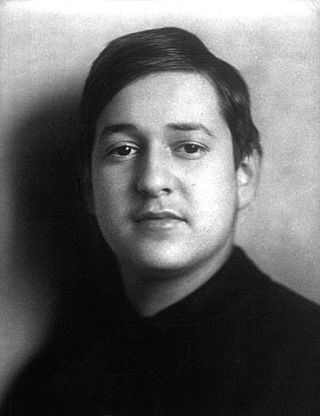
Erich Wolfgang Korngold was an Austrian composer and conductor, who fled Europe in the mid-1930s and later adopted US nationality. A child prodigy, he became one of the most important and influential composers in Hollywood history. He was a noted pianist and composer of classical music, along with music for Hollywood films, and the first composer of international stature to write Hollywood scores.
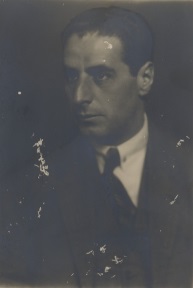
Ernst Toch was an Austrian composer of European classical music and film scores, who from 1933 worked as an émigré in Paris, London and New York. He sought throughout his life to introduce new approaches to music.
Willy Burkhard was a Swiss composer and academic teacher, influential in both capacities. He taught music theory at the Berne Conservatory and the Zürich Conservatory. His works include an opera, oratorios, cantatas, and many instrumental genres from piano pieces to symphonies.
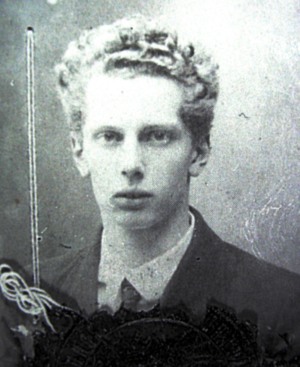
Boris Blacher was a German composer and librettist.
The Four Last Songs, Op. posth., for soprano and orchestra are – with the exception of the song "Malven" (Mallows), composed later the same year – the final completed works of Richard Strauss. They were composed in 1948 when the composer was 84.

Walter Braunfels was a German composer, pianist, and music educator.

Hans Gál OBE was an Austrian composer, pedagogue, musicologist, and author, who emigrated to the United Kingdom in 1938.
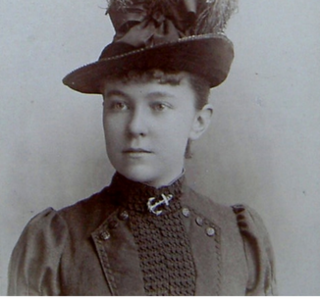
Johanna Müller-Hermann was an Austrian composer and pedagogue.

Roman Haubenstock - since 1943 Roman Haubenstock-Ramati was a composer and music editor who worked in Kraków, Tel Aviv and Vienna.
The Symphony in F-sharp, Op. 40, is the only symphony by 20th-century Austrian composer Erich Wolfgang Korngold, although as a teenager in 1912 he had written a Sinfonietta, his Op. 5. Using a theme from the 1939 film The Private Lives of Elizabeth and Essex, the symphony was completed in 1952 and dedicated to the memory of American president Franklin D. Roosevelt, who had died seven years earlier.

Theater Dortmund is a theatrical organization that produces operas, musicals, ballets, plays, and concerts in Dortmund, Germany. It was founded as the Stadttheater Dortmund in 1904. Supported by the German Government, the organization owns and operates several performance spaces.
Hans Ulrich Engelmann was a German composer.
Klaus Simon is a German classical pianist and conductor.
Hermann Reutter was a German composer and pianist who worked as an academic teacher, university administrator, recitalist, and accompanist. He composed several operas, orchestral works, and chamber music, and especially many lieder, setting poems by authors writing in German, Russian, Spanish, Icelandic, English, and ancient Egyptian and Greek, among others.
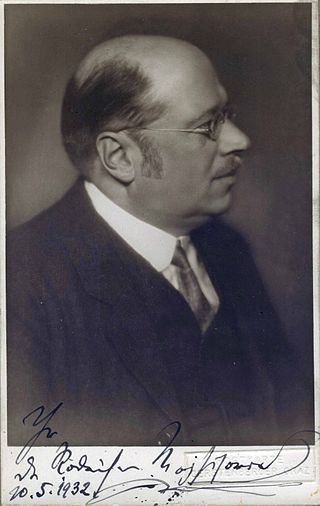
Roderich Mojsisovics von Mojsvár was an Austrian composer based in Graz, head of the Schule des Musikvereins für Steiermark there.

Frieder Weissmann was a German conductor and composer.
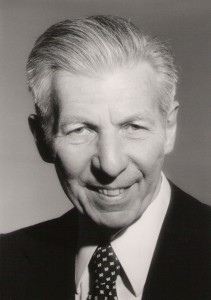
Siegfried Borris was a German composer, musicologist and music educator. He became a lecturer at the Musikhochschule Berlin in 1929, but his career was interrupted during the Nazi regime. He was appointed professor in 1945 and became an influential pedagogue, composer of music for young players, and active in music organisations. He was president of national associations, of Deutscher Tonkünstlerverband from 1963 to 1972, and of Deutscher Musikrat from 1971 to 1976.
References
- ↑ Amaury du Closel: Erstickte Stimmen: "Entartete Musik" im Dritten Reich, p. 377 (2010): "Im Jahr 1946 begann Korngold mit der Arbeit an seinem letzten musikdramatischen Werk, Die stumme Serenade, op. 36, einer musikalischen Komödie, die sich durch eine äußerst ungewöhnliche Orchestrierung auszeichnet (zwei Klaviere, Celesta, zwei ... Das Werk kam zunächst 1951 in einer konzertanten Fassung bei Radio Wien zur Aufführung, bevor die eigentliche szenische Uraufführung 1954 in Dortmund stattfand."